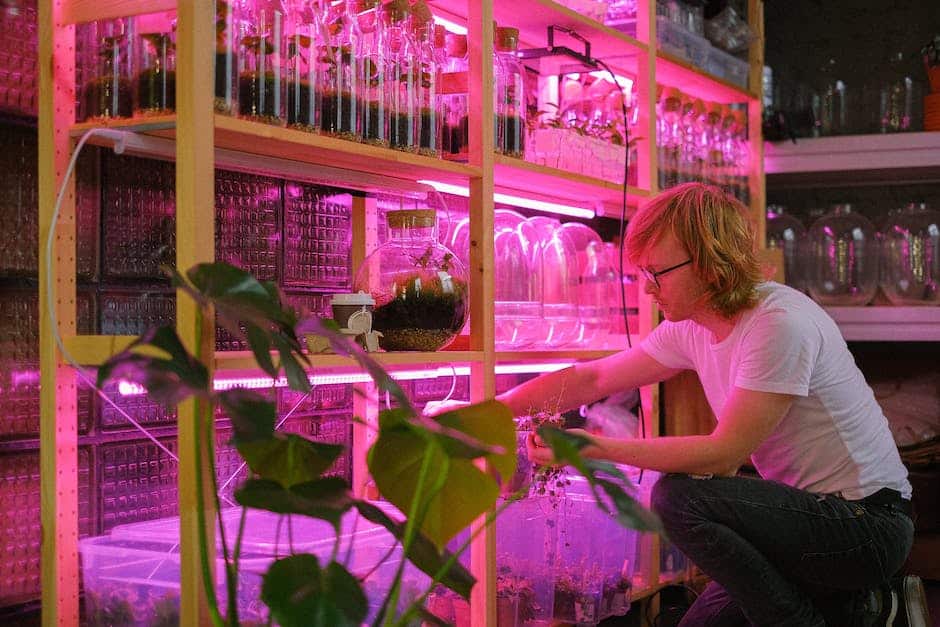Can Root Vegetables be Grown Hydroponically?
Yes, root vegetables can indeed be grown hydroponically. Hydroponics, a method of growing plants without soil, offers several advantages for cultivating root vegetables such as garlic, onions, radishes, carrots, and potatoes. In this article, we will explore the feasibility of growing root vegetables hydroponically, the benefits it offers, and any potential downsides.
Advantages of Growing Root Vegetables Hydroponically
There are numerous advantages to growing root vegetables hydroponically. One significant benefit is the better control over nutrient levels, pH, and temperature in hydroponic systems. This precise control allows for optimal conditions, which often results in higher yields compared to soil-grown counterparts.
Hydroponic systems also eliminate the reliance on suitable weather conditions. Traditional soil-based farming is heavily dependent on favorable weather, which can be unpredictable and subject to climate change. By growing root vegetables hydroponically, farmers can ensure a consistent growing environment throughout the year.
Another advantage of hydroponics is the reduced risk of pests and diseases. Soil-borne pathogens and insects can wreak havoc on root vegetables, leading to crop loss. However, in hydroponic systems, the absence of soil minimizes the risk of these pests and diseases, allowing for healthier and more productive plants.
Furthermore, hydroponic systems can be set up at a relatively low cost. While there may be an initial investment in equipment and setup, the long-term benefits can outweigh the expenses. Hydroponics requires less water compared to traditional soil farming, making it a more sustainable option for growing root vegetables.
Potential Disadvantages
While the advantages of growing root vegetables hydroponically are substantial, there are also some potential drawbacks to consider. Unfortunately, the provided information does not mention any specific disadvantages of growing root vegetables hydroponically. However, it is important to note that hydroponic systems require more effort and space compared to growing other types of plants. Root vegetables often have larger root systems, which necessitates larger containers or growing areas.
Conclusion
In conclusion, growing root vegetables hydroponically is indeed possible and offers numerous advantages. The control over growing conditions, the elimination of weather dependence, and the reduced risk of pests and diseases make it an attractive option for farmers and home gardeners alike. Additionally, hydroponic systems can be cost-effective and environmentally friendly due to their water-saving capabilities. While there may be some additional effort and space requirements, the benefits of hydroponic root vegetable production outweigh the potential downsides.
Related Websites:
FAQs:
Q: Can root vegetables be grown hydroponically?
Yes, root vegetables can be grown hydroponically. While they preferentially grow in soil, there are techniques like Deep Water Culture (DWC), Nutrient Film Technique (NFT), and Ebb and Flow method that can be used to successfully cultivate root vegetables hydroponically.
Q: What are the benefits of growing root vegetables hydroponically?
Growing root vegetables hydroponically offers several benefits. Firstly, it allows for faster growth compared to traditional soil cultivation. Additionally, hydroponic systems can provide a nutrient-rich environment, resulting in greater yield potential. Furthermore, hydroponics eliminates the need for soil, making it a space-saving and water-efficient method of cultivation.
Q: What are the challenges of growing root vegetables hydroponically?
While it is possible to grow root vegetables hydroponically, they do pose certain challenges. Root vegetables have specific nutrient requirements that need to be carefully managed in a hydroponic setup. Additionally, some hydroponic systems may not be as suitable for root vegetable cultivation compared to others.
Q: How do nutrient solutions meet the requirements of root vegetables in hydroponics?
Selecting appropriate nutrient solutions is crucial for successful root vegetable cultivation in hydroponics. Root vegetables have specific nutrient needs, and these can be met by formulating nutrient solutions that provide the necessary elements in the right proportions. By adjusting the nutrient solution composition, hydroponic growers can ensure optimal growth and development of root vegetables.






